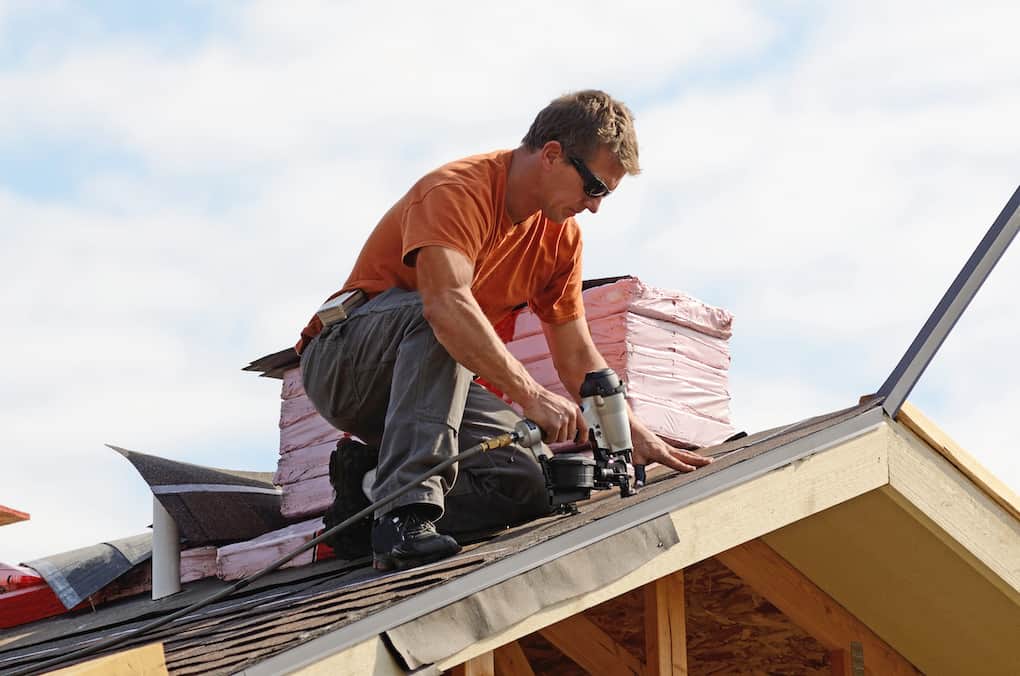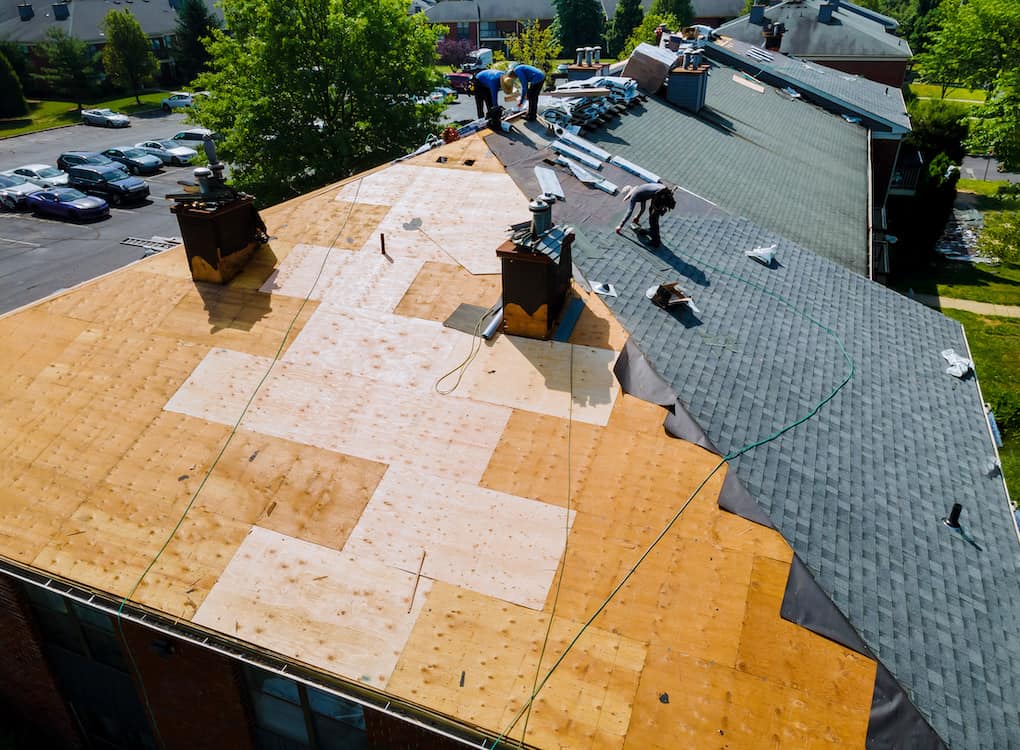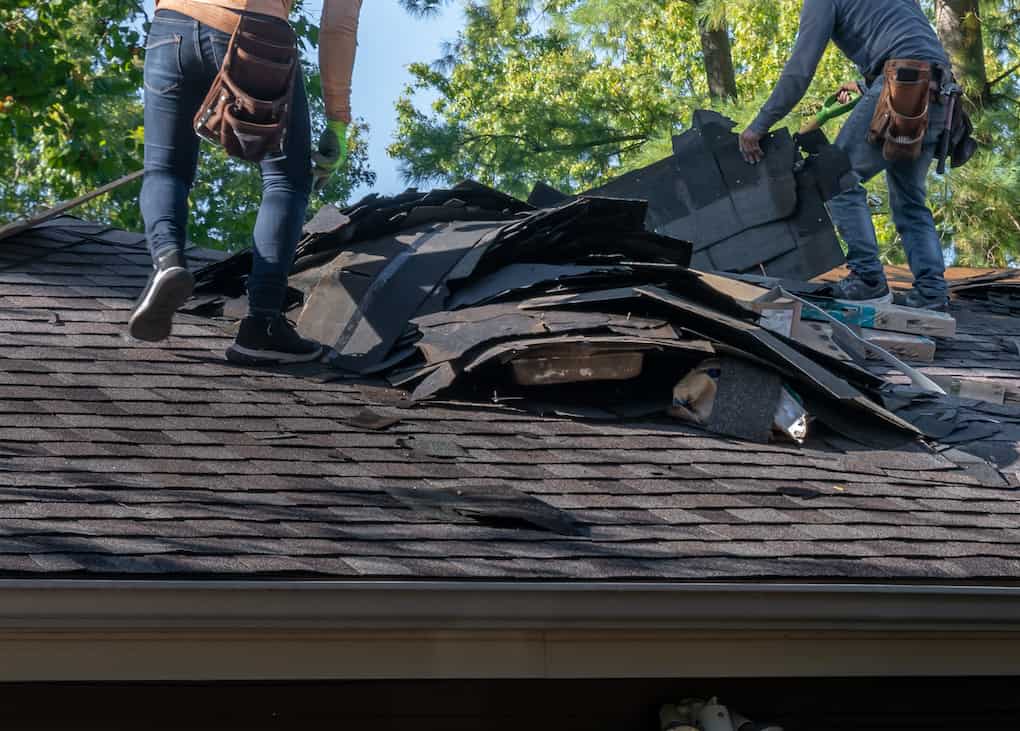Roofing contractors love to promote the warranty that comes with your new roof. A roof warranty always sounds nice, but what does it actually entail? It seems like every contractor has some kind of warranty, so does it really matter which one you go with?
We’re going to help you understand roof warranties so that you know exactly what you’re getting into when you replace your roof.
Standard roof warranties are the most commonly offered type, but there are also workmanship and extended warranties as well. Let’s take a look at each of these types of warranties and determine what you need.

Standard Manufacturer’s Roofing Warranties: Explained
A standard manufacturer’s roof warranty simply covers the products that you purchase for your roof, i.e, the shingles. Most brands of shingles will come with a standard warranty which will protect you from any manufacturing defects or faulty products.
To be clear, a standard warranty will not protect you from any installation errors or any damage that occurs to your roof. The only time you’ll be able to cash in on a standard warranty is if there was an error from the factory.
Examples of factory defects would be cracked or damaged shingles or shingles failing to stand up to the quoted wind resistance. Some stipulations come with your standard warranty as well.
3 Standard Warranty Stipulations
1. You need to register your warranty. Your standard warranty will only be effective if you register it with the manufacturer at the time of installation. Forgetting to do so will leave you high and dry if you encounter any issues with defective shingles.
Most of the time, you can do this through the manufacturer’s website or your contractor will be able to provide you with more information. Be sure to ask your roofing contractor about the registration process, and they will guide you through it.

2. You must maintain your roof. If you don’t keep a tight ship on the maintenance of your roof, then there’s no way for that warranty to be valid. This also means making sure that any repairs are done in accordance with the manufacturer’s instructions or specifications. Most DIY repairs result in a voided warranty.
3. You have to live in the property. Your warranty is only valid if you own and reside at that location where your roof was installed for a period of time, typically ten years from the installation date. Some, not all, manufacturers do offer the ability to transfer warranties along with the sale/purchase of your home.
How Long Does a Standard Warranty Last?
Manufacturers generally offer at least 10 years of coverage, with some offering more substantial “lifetime” warranties. If your shingles come with a standard warranty that only lasts 10 years, the manufacturer will likely offer a pro-rated extended/lifetime warranty after those 10 years are up.
Do You Need a Standard Warranty?
The question we’ve all been waiting for. Is a standard roof warranty absolutely essential? Ultimately, no. You don’t need a standard warranty to have a safe and protective roof. The standard warranty will only cover factory defects on your shingles and roofing system. BUT, with so many of the top manufacturers offering at least 10 years of basic coverage in their standard warranty for no extra cost, why not?
For most, it makes the most sense to choose a shingle that comes with a standard warranty. Registration is free, and if you’re able to get some material coverage along with the biggest investment in your house, don’t hesitate!
Other Types of Warranties
In addition to standard manufacturer’s warranties, there are also workmanship and extended warranties. Both of these warranties would be offered directly through your roofing contractor.
Workmanship Warranty
A workmanship warranty goes above and beyond a standard manufacturer’s warranty. In fact, this type of warranty comes from your roofing contractor and not the manufacturer of the roofing products. This type of warranty covers defects in your roof caused by workmanship errors along with installation problems such as leaky shingles, faulty sealant, etc.
Workmanship warranties are a little harder to come by, as it’s essentially a roofing contractor’s promise that they’ll do the job right the first time. If they don’t, their warranty will cover the cost of fixing that mistake.
What’s Included in a Workmanship Warranty?
It’s important to note that a workmanship warranty is secondary to a standard manufacturer’s warranty. Meaning that if your home has a standard manufacturer’s warranty on the shingles and you have workmanship coverage as well, it will only cover what the manufacturer’s warranty doesn’t.

A roofer’s workmanship warranty will generally cover any leak, defect, failure, or deficiency in the roofing system due to improper installation. This warranty will not cover any damage to your roofing system from natural causes or unusual events (I.E. a tree falling on your home). Contractors will usually have stipulations in their warranties, so it’s important to review the warranty agreement provided by your contractor.
How Long Does a Workmanship Warranty Last?
The length of a workmanship warranty is entirely dependent on the contractor providing it. You will need to review the warranty contract, but it could be as low as a year of coverage from the installation date all the way to a lifetime workmanship warranty. Typically, the most common workmanship warranties are 5 or 10 years.
Do You Need One?
If you find a roofer that offers a workmanship warranty, you should absolutely take advantage of that. Of course, continue to do your research on the contractor to ensure they do quality work. But a workmanship warranty is a good indication that the contractor truly cares about the quality of their work, and in the off chance they mess up, they are happy to fix it.
Additionally, workmanship warranties are generally free. The difficult part is just finding a contractor that offers one! In most cases, a roofing contractor will be very proud of their workmanship warranty, so be sure to look through a roofer’s website or ask them about it.
Extended Warranty (Partner Programs)

Some manufacturers have partner programs with select contractors to provide you with an extended warranty for your roof. This extends the standard warranty that comes with your roofing system.
An example of an extended warranty is Owen’s Corning’s “Platinum Preferred Contractor” program. If your roof system is installed by a platinum preferred contractor, you have the option to pay for an extended warranty on your roofing materials.
How Long Does an Extended Warranty Last?
Most extended warranties will have different levels based on warranty coverage and the amount of time for the additional coverage. Take a look at the Owens Corning extended warranty table here for an example.
Take Advantage of Warranties When You Get a New Roof
Whether you’re in the market for asphalt shingles or a new roofing system, it’s helpful to understand the different warranties available and how they might benefit you or even save you money. Damages and repairs on unique/difficult roofs can cost significantly more.
You might want to shop around for extended warranties or look for contractors with workmanship warranties if your house has special requirements or is especially difficult to install due to steeply pitched roofs or other factors. Now that you’re knowledgeable on the topic of warranties be sure to check out our post on the best asphalt shingles in 2021!
Find a certified, trusted local roofing contractor who offers great warranties with the help of Directorii!
